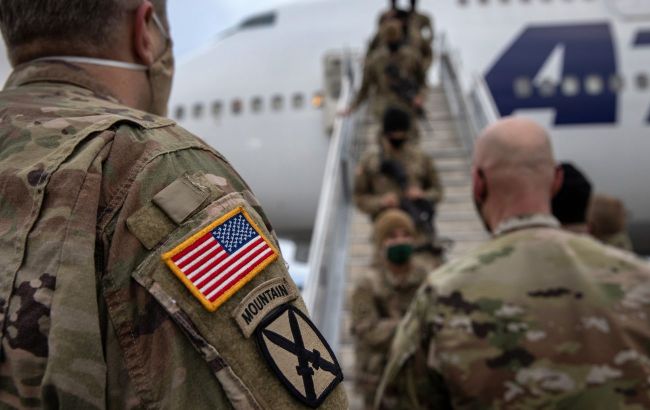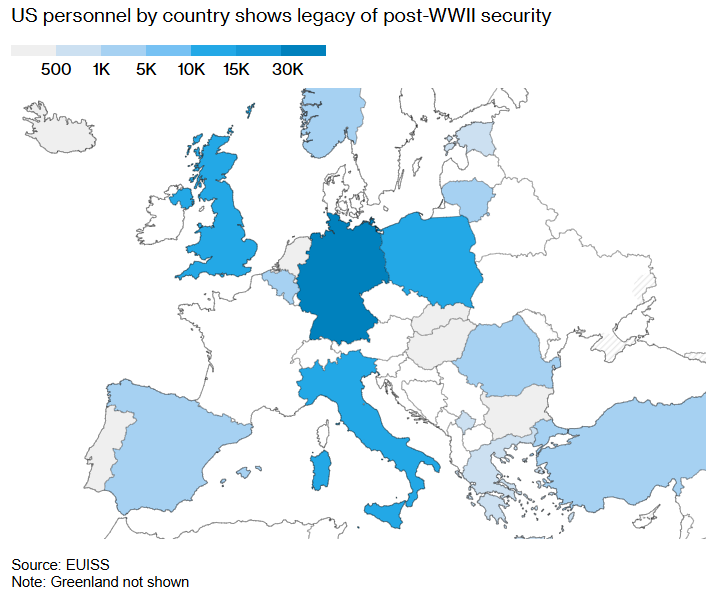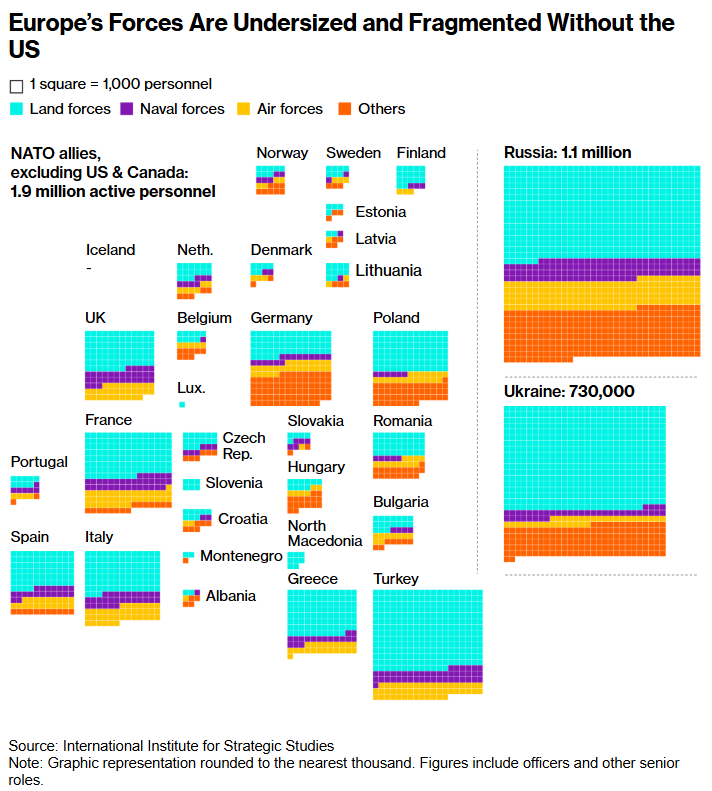Europe asks US to delay inevitable troop withdrawal from continent - Bloomberg
 Photo: The United States will reduce the number of troops in Europe (Getty Images)
Photo: The United States will reduce the number of troops in Europe (Getty Images)
Europeans fear they will not be warned and will learn from the media that thousands of US troops are being pulled out of the continent, according to Bloomberg.
European officials believe that President Donald Trump's administration will almost certainly withdraw some of the roughly 80,000 US troops stationed in Europe. Europe is urging the US to coordinate any plans, sources said.
Any decision by the White House to withdraw troops and weapons from Europe could undermine intense efforts by NATO allies to improve their ability to deter Russian aggression.
NBC News reported that the United States is considering withdrawing up to 10,000 soldiers from Eastern Europe. Before the war, there were about 65,000 US troops in Europe, and after Russia's full-scale invasion of Ukraine, their number sometimes reached 100,000.

One German diplomat said they expected such a move to be announced earlier, such as during Vice President J.D. Vance's speech at the Munich Security Conference in February.
When NATO foreign ministers met with US Secretary of State Marco Rubio at the alliance's headquarters last week, the Europeans sought to reassure him that they are beginning to shoulder more of the burden of their defense and increase military spending, a longstanding demand of Trump. Senior NATO diplomats said that all allies agree that burden-shifting should take place.
Instead, the Europeans wanted a commitment from their American partners to give advance notice of any withdrawal. Diplomats said that the main message to the US was that European allies need time to prepare for a reduced US presence.
Vulnerable Europe
The speed of any US withdrawal could be an important factor in Europe's vulnerability. The continent remains heavily dependent on Washington's military leadership, and leaders are working hard to quickly develop their capabilities. These efforts are being reinforced by deep divisions within the EU over how to finance increased military spending and stimulate Europe's defense sector.
Meanwhile, European officials continue to argue to Washington the political benefits of their military presence on the continent. One senior European diplomat said they are trying to convince the United States that their troops on the continent project political power.
Another official told Bloomberg News that the US withdrawal of other military assets from Europe, such as logistics, air, and intelligence capabilities, would have a greater impact on potential flashpoints in Asia than a troop reduction.
Troop reductions
The exact number and locations affected by the planned withdrawal of US troops are not yet known. However, the 20,000 additional troops that former President Joe Biden deployed to Eastern Europe after Russia's full-scale invasion of Ukraine could be at stake, sources said.
Allies expect the US to eventually reduce this particular deployment force, European officials said on condition of anonymity.
However, a reduction in US troop levels beyond those recently deployed by Biden would be a major concern, European officials said.
Eastern flank
Even a limited withdrawal would mean weakening US support for NATO frontline states such as Poland and Romania. Such a move could deepen divisions within the alliance and embolden Moscow, whose troops continue to advance in Ukraine.

The US Army's Europe and Africa Command said it is moving some troops from its base in Jasionka to other locations in Poland.
Polish Prime Minister Donald Tusk said he had received assurances from the US that it would not reduce the number of troops in the country, and he hoped the White House would fulfill this commitment.
NATO Secretary General Mark Rutte echoed these concerns during a visit to Warsaw last month, where he said the assurances should be a "two-way street".
“Europe needs to know that Uncle Sam still has our back,” he said, emphasizing his confidence that the United States intends to defend its NATO allies in the event of an attack.

